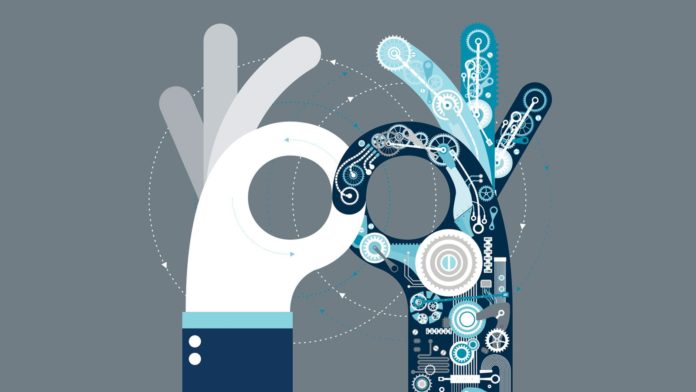There’s no question that technology has brought previously unimaginable wonders in just about every industry. It has even created entirely new industries. In fact, technology is the reason Robert Deignan started ATS Digital Services, a company that helps consumers troubleshoot a wide variety of tech problems. But even Deignan’s company has evolved dramatically thanks to technology. With sophisticated remote troubleshooting capabilities, Deignan and his team have continue to improve the customer support experience for millions of consumers.
But technology is not without its downsides. Just take a look around you the next time you hop on a bus, train, or airplane. Look at people walking down the street, or driving their car. Do that for a week or so and you’ll be amazed at how many people are on their phones. And, chances are, their jobs require them to sit at or near a computer for at least eight hours a day. That’s a lot of time looking at a screen.
Common sense says that constant, massive consumption of anything is a bad thing. But how exactly is our constant consumption of technology bad? And how can you redefine your relationship with technology to make sure you’re getting more of the upside and less of the downside? To answer those questions, we turn to Robert Deignan for his insight on why you should create a better relationship with technology.
1. Multiple Screens Can Distract
The BBC cites a study by UC Irvine in which researchers followed American information workers and timed their actions. In 2004, they found that workers switched their attention to a different task every three minutes. Eight years later, in 2012, that time went down to one minute and 15 seconds. In 2014, that average had fallen to 59.5 seconds.
It’s hard to pinpoint any one thing, but it’s undeniable that the rise of social media sites, streaming music and video, apps, games, phones, and tablets have contributed to our constant state of distraction. Still, the point isn’t to divorce yourself from technology. Streaming is convenient, and for many people, a better way to consume television. Social media allows us to stay connected like never before and communicate with customers in new ways.
Rather the point is that you should be aware of the effects of all this external stimulus. Because, by being aware, you can take control of your digital habits to make yourself more productive. Dictating the relationship with technology, instead of having it dictated, was a pivotal step for Robert Deignan to create ATS Digital Services.
2. Technology Changes the Way We Think
Contrary to what was previously thought, the human brain is malleable. A comprehensive study of cab drivers in London helped to prove it. In London, cab drivers have to memorize every route imaginable and all the tourist hot spots in the city. Because London is so vast and the streets are poorly organized, this training takes about four years.
In the study, researchers measured the hippocampus, a portion of the brain dedicated to memory, and found that cab drivers who underwent this training developed a larger hippocampus.
Because the brain is malleable, it’s important to consider the way technology changes the way our brain works. Compared to say, reading, technology has all sorts of distractions—notifications, updates, emails, text messages, etc—that require a different kind of focus. As Psychology Today points out “Technology conditions the brain to pay attention to information very differently than reading.”
Again, the point is not that technology is bad and you need to stay away from it. Rather, you should realize how important it is to diversify your tasks each day; don’t spend the entire day using your devices. Consume information in other ways. Reading helps develop your imagination and memory while using technology can improve reaction times and visual-spatial capabilities. In other words, everything has its place in moderation.
3. Technology is Designed to be Addictive
This doesn’t hold true for every piece of technology, but it is for many modern advances, particularly smartphones. And it doesn’t show any signs of slowing down. In the modern age, what’s called the “economy of attention” puts a premium on the value of your attention. And it’s increasingly important to advertisers that app developers and media sites show that users are actively engaging with their content.
For an advertiser, a small number of engaged users is worth more than a large number of unengaged users. Product and content developers know this, so they design their products and content to grab your attention and keep it. They do so based on your brain chemistry and behavioral patterns. And they spend a lot of money to figure out how to hit just the right note.
The Washington Post points out that things like unpredictable rewards, a misleading sense of early mastery, and more, are common methods by which tech companies develop addictive products. This is an unfortunate, but inevitable consequence of the way companies make money on the modern internet. And it’s a very compelling reason that even tech experts like Robert Deignan must take an active role in their use of technology.
Taking Control of the Relationship
Technology has created untold numbers of opportunities for tech entrepreneurs such as Robert Deignan. It has paved the way for life-saving medical discoveries. It has made it possible for us to call a cab with the touch of a button. And we’re more connected to our loved ones than ever before thanks to technology. Really, there’s no shortage of improvements that technology has made to our everyday lives. But again, everything in moderation.
The average smartphone user checks their phone 47 times a day according to one study. 85 percent of users check their phone while they’re having a conversation with friends and family. We need to be in control of the way we use technology to truly get the greatest benefit from it. And that only happens when we become aware of the way tech taps into our natural tendencies to encourage addiction and change the way we think.






